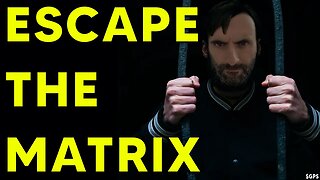Opinion Beyond the ‘Matrix’ Theory of the Human Mind - The New York Times
🥇 Bonuses, Promotions, and the Best Online Casino Reviews you can trust: https://bit.ly/BigFunCasinoGame
Opinion Beyond the ‘Matrix’ Theory of the Human Mind - The New York Times
Ezra Klein Credit... Christopher Anderson/Magnum Photos Send any friend a story As a subscriber, you have 10 gift articles to give each month. Anyone can read what you share. Imagine I told you in 1970 that I was going to invent a wondrous tool. This new tool would make it possible for anyone with access — and most of humanity would have access — to quickly communicate and collaborate with anyone else. It would store nearly the sum of human knowledge and thought up to that point, and all of it would be searchable, sortable and portable. Text could be instantly translated from one language to another, news would be immediately available from all over the world, and it would take no longer for a scientist to download a journal paper from 15 years ago than to flip to an entry in the latest issue. What would you have predicted this leap in information and communication and collaboration would do for humanity? How much faster would our economies grow? Now imagine I told you that I was going to invent a sinister tool (perhaps, while telling you this, I would cackle). As people used it, their attention spans would degrade, as the tool would constantly shift their focus, weakening their powers of concentration and contemplation. This tool would show people whatever it is they found most difficult to look away from — which would often be what was most threatening about the world, from the worst ideas of their political opponents to the deep injustices of their society. It would fit in their pockets and glow on their night stands and never truly be quiet; there would never be a moment when people could be free of the sense that the pile of messages and warnings and tasks needed to be checked. What would you have thought this engine of distraction, division and cognitive fracture would do to humanity? Thinking of the internet in these terms helps solve an economic mystery. The embarrassing truth is that productivity growth — how much more we can make with the same number of people and factories and land — was far faster for much of the 20th century than it is now. We average about half the productivity growth rate today that we saw in the 1950s and ’60s. That means stagnating incomes, sluggish economies and a political culture that’s more about fighting over what we have than distributing the riches and wonders we’ve gained. So what went wrong? You can think of two ways the internet could have sped up productivity growth. The first way was obvious: by allowing us to do what we were already doing and do it more easily and quickly. And that happened. You can see a bump in productivity growth from roughly 1995 to 2005 as companies digitized their operations. But it’s the second way that was always more important: By connecting humanity to itself and to nearly its entire storehouse of information, the internet could have made us smarter and more capable as a collective. I don’t think that promise proved false, exactly. Even in working on this article, it was true for me: The speed with which I could find information, sort through research, contact experts — it’s marvelous. Even so, I doubt I wrote this faster than I would have in 1970. Much of my mind was preoccupied by the constant effort needed just to hold a train of thought in a digital environment designed to distract, agitate and entertain me. And I am not alone. Gloria Mark, a professor of information science at the University of California, Irvine, and the author of “Attention Span,” started researching the way people used computers in 2004. The average time people spent on a single screen was 2.5 minutes. “I was astounded,” she told me. “That was so much worse than I’d thought it would be.” But that was just the beginning. By 2012, Mark and her colleagues found the average time on a single task was 75 seconds. Now it’s down to about 47. This is an acid bath for human cognition. Multitasking is mostly a myth. We can focus on one thing at a time. “It’s like we have an internal whiteboard in our minds,” Mark said. “If I’m working on one task, I have all the info I need on that mental whiteboard. Then I switch to email. I have to mentally erase that whiteboard and write all the information I need to do email. And just like on a real whiteboard, there can be a residue in our minds. We may still b...
-
 7:15
7:15
Best Product Reviews
11 months agoOpinion The True Threat of Artificial Intelligence - The New York Times
88 -
 6:41
6:41
Best Product Reviews
1 year agoOpinion Big Tech Is Bad. Big A.I. Will Be Worse. - The New York Times
16 -
 4:51
4:51
Age of Discovery
2 years ago $0.01 earnedObservation on Mainstream Ai Research
5342 -
 1:02:33
1:02:33
The Heavenly Tea
7 months agoChoosing WHAT to Share with AI The Truth Behind your thoughts manifesting as social media adverts:
1.23K2 -
 2:13:32
2:13:32
Interesting Times
6 months agoMENTAL MODELS, MISINFORMATION AND THE WANING OF HUMAN COGNITION, BBN (1 DEC 23)
169 -
 34:28
34:28
The Heavenly Tea
8 months agoBecoming Utterly free of Matrix Money Paradigms
217 -
 7:12
7:12
The Money GPS
1 year ago $0.11 earnedHow to Escape the Matrix with ONE Powerful Mindset Shift
288 -
 3:16
3:16
HARPAXO
1 year ago"new age but smacks of the truth!"
1.1K2 -
 19:39
19:39
Waking the World up
9 months agoSaul Alinsky Explicated – Manipulation of the Useful Idiots – 12 Rules for Radicals
1.08K -
 4:42
4:42
The Krehbiel Group - Something I Learned Yesterday
11 months agoThe future of media is less media
70